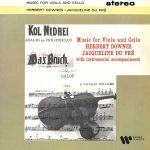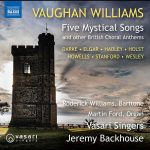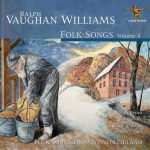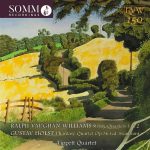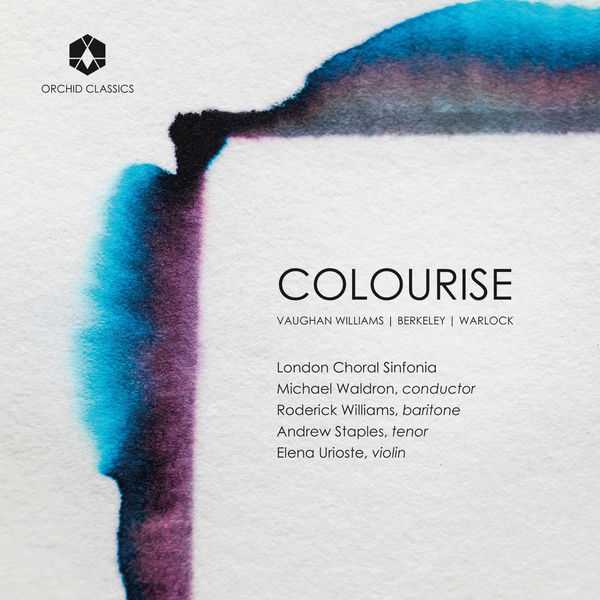

Composer: Lennox Berkeley, Ralph Vaughan Williams, Peter Warlock
Performer: Roderick Williams, Andrew Staples, Elena Urioste
Orchestra: London Choral Sinfonia
Conductor: Michael Waldron
Format: FLAC (tracks)
Label: Orchid
Catalogue: ORC100200
Release: 2022
Size: 2.13 GB
Recovery: +3%
Scan: yes
Vaughan Williams: Five Mystical Songs
01. No. 1, Easter
02. No. 2, I Got Me Flowers
03. No. 3, Love Bade Me Welcome
04. No. 4, The Call
05. No. 5, Antiphon
06. Berkeley: Variations on a Hymn by Orlando Gibbons, Op. 35
Warlock: Capriol Suite
07. No. 1, Basse-danse
08. No. 2, Pavane
09. No. 3, Tordion
10. No. 4, Bransles
11. No. 5, Pieds-en-l’air
12. No. 6, Mattachins
13. Vaughan Williams: The Lark Ascending
The catalyst for this recording came with the chance discovery of a vocal score of Berkeley’s Variations on a Hymn by Orlando Gibbons. Not ever having heard of the piece, I saw the forces it is scored for and thought it fit rather well the remit of the LCS. A little research soon revealed that the piece had never been recorded, nor was there anything of a performance history either. I could tell there was a piece of real merit and substance here, and it most definitely deserved an outing. All this coincided with the arrival of the pandemic and subsequent lockdown. Planning live performances was impossible but working towards a recording further down the line seemed doable. January 2021 came and we – like so many others – had to cancel the planned recording. By January 2022, the project finally happened. I would like to add my personal thanks to the Lennox Berkeley Society, who have been so helpful and supportive since my very first email to them, not to mention patient as the pandemic forced recording plans to keep being postponed.
Berkeley was not unique in looking to the past for inspiration. Knowing that his Gibbons Variations would require string orchestra, I immediately thought that Warlock’s Capriol Suite might provide a suitable companion on this album. I have fond memories of playing the piano duet version alongside my sister as children. Perhaps unfairly relegated to the realms of school orchestras and amateur groups, the Capriol Suite is a real tour de force and has a surprisingly sparse catalogue of high-level recordings. It is technicolour in each movement’s effects, whilst remaining authentic to the medieval inspiration at its core. The final movement – Mattachins – forever reminds me of the end of Ravel’s La Valse (written six years earlier) as the poise and grace of everything before gradually descends into chaos and self-destruction.
The 5 Mystical Songs of Vaughan Williams need little introduction, and their earlier George Herbert texts provide a continued rhythm alongside the Berkeley and Warlock. I had always thought the songs existed in two versions; one being a full, large-scale orchestrated version and the other being a keyboard reduction of said orchestration for piano and/or organ. The obvious practical implications of both versions put heavy parameters around the number of singers, size of venue etc. Despite their huge popularity, I was pleasantly surprised to discover that a version existed for string orchestra and piano (with the chorus and baritone solo parts the same as other versions), created by the composer himself. I was not aware this version existed, and the publisher confirmed that it had never been recorded in this arrangement before. I believe these pieces are Vaughan Williams at his absolute best, and whilst the music does not itself need “discovering”, I hope this chamber-orchestra version sheds a new light on it. I also hope this version may provide new opportunities for performances from groups of all shapes and sizes, who may want to perform these pieces with forces larger than just a keyboard instrument, but without the huge resources of the version for symphony orchestra.
